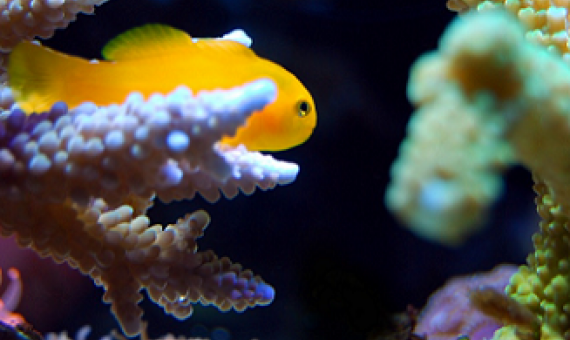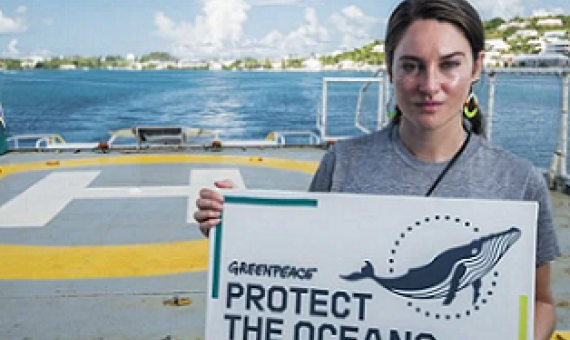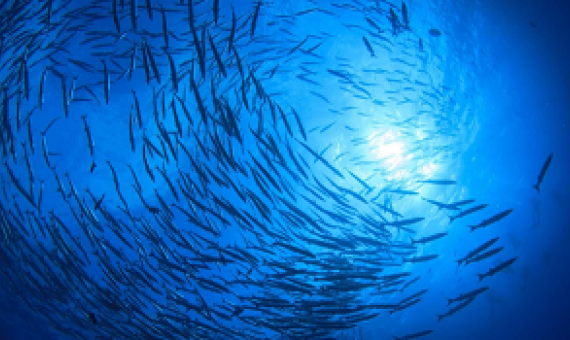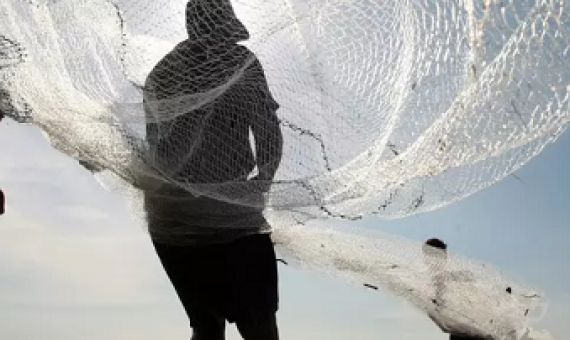A new study, published in Fisheries Research, reveals that the sheer amount of tuna being taken from our seas, including some species considered "vulnerable," has increased by an astonishing 1,000% in the last 60 years — a rate that some scientists are saying is unsustainable.
NOAA’s Coral Reef Conservation Program has awarded more than $9.3 million in grants to support coral conservation projects and scientific studies in seven U.S.
Our seas are in deep, deep trouble. They house an extraordinarily diverse eco-system of marine life, and are crucial to the well being of land-based ecosystems. And as of this moment, they may as well be the Wild West for corporations and governments to pillage as they please.
Emissions of mercury have declined, but levels in fish could still increase thanks to overfishing and a changing climate...Released by coal-burning power plants and other industries, mercury—a toxic metal—circulates in the atmosphere, enters the ocean, worms up the food web and, via the seafood w
The stakes are high for the Pacific, where the pulse of an ailing ocean is sounding a warning for the future of its 12 million people.
Jacqueline Evans, a marine conservationist from the Cook Islands, has received a Goldman Environmental Prize for helping to lead a campaign to protect her island country’s waters. Click on the link below to read the full article.
The largest ocean on Earth is filled with mysteries, but also subject to great pressures like climate change, plastic pollution, and overfishing. Click on the link below to read the full article.
Millions of pounds’ worth of funding to tackle global overfishing and protect coral reefs will be announced at a major conference in Indonesia this week.Click on the link below to read the full article.
An attainable global vision for conservation and human well-being
A hopeful vision of the future is a world in which both people and nature thrive, but there is little evidence to support the feasibility of such a vision. We used a global, spatially explicit, systems modeling approach to explore the possibility of meeting the demands of increased populations and economic growth in 2050 while simultaneously advancing multiple conservation goals.
Predicting impact to assess the efficacy of community-based marine reserve design
During the planning phase the efficacy of different strategies to manage marine resources should ultimately be assessed by their potential impact, or ability to make a difference to ecological and social outcomes. While community-based and systematic approaches to establishing marine protected areas have their strengths and weaknesses, comparisons of their effectiveness often fail to explicitly address potential impact.

![A new study finds that tuna harvests, including of some species considered "vulnerable," have increased by an astonishing 1,000% in the last 60 years — a rate that some scientists warn is unsustainable. [NiCK / Getty Images]](/sites/default/files/styles/news_teaser/public/TUNAoverharvest.png?itok=crdL4iA0)












